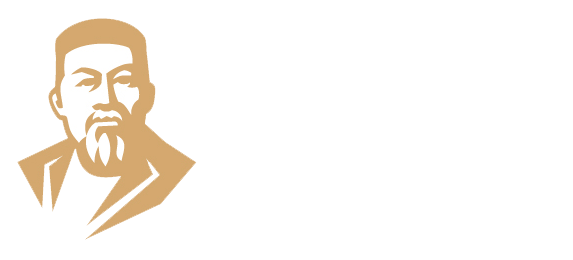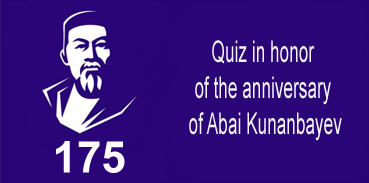About the project
Work on the creation of the electronic library "Біздің Абай/ Наш Абай/ Our Abay" began in 2014, on the eve of the 170th birthday of the great Kazakh poet, the founder of Kazakh literature, our countryman Abay Kunanbayev. In the electronic library, we want to fully reflect the Abay’s entire heritage in digital format, starting from rarities and ending with modern editions. A significant part of the library will be the sources on Abaeology. Open access to electronic copies is provided in accordance with the copyright law of the Republic of Kazakhstan.
Indeed, the success of this project largely depends on the participation of domestic and foreign libraries. Our initiative was supported by the National Library of the Republic of Kazakhstan, National Libraries of Ukraine, Belarus, Azerbaijan, Tatarstan, Bashkortostan, East Kazakhstan Regional Library named after Abay, Scientific Libraries of Kazakh National University named after Al-Farabi, Sarsen Amanzholov East Kazakhstan State University. We are grateful to all our partners for their support and assistance in the work on the project!
Creating a library consists of several stages. At the first stage, searches were made for the publications of Abay and their location’s determination. The basis of the library was the books available in the collection of our East Kazakhstan Regional Library named after A.S. Pushkin. Also there were found editions that had been absent in our fund. Then letters were sent to the largest libraries of Kazakhstan, near and far abroad with a proposal of partnership, asking to provide digital copies of the missing books.
The second stage of creating the library was to directly digitize the publications and place them in an electronic catalogue in a separate collection of Bizdin Abai/ Nash Abay. Since the collection was immediately opened for remote access, measures were taken to restrict access to publications that are the copyright of the Republic of Kazakhstan. Therefore, most of the publications are currently not available for reading and downloading remotely. Reading books in digital format is possible only within the walls of the library. In this case, there is no possibility of copying, printing, and other manipulations with the text.
The third stage consisted of developing the library interface, its structure, filling thematic rubrics with information, translating the texts of Abay's works into formats for reading on mobile devices EPUB, FB2. The technological basis of the library is an electronic catalog on the J-Irbis platform, which has powerful functionality and ample opportunities for using data. This allowed us to expand the service offerings of the library. First of all, filling thematic sections with related information that remains outside the scope of the catalogue. From the very beginning of the project, it was decided that the library will contain not only Abay’s books and literature about him, but also other information for the full coverage of the personality of the great poet. Therefore, the library provides information about the project participants - Abay book holders, authors and translators, Internet resources, etc.
Now we are at the fourth stage, which cannot be called final, since it involves three permanent areas of work with the library. The first is updating the resource, which means the replenishment of the library not only with new editions, but also further searches for publications about Abai. First of all, these are articles from periodicals and foreign sources.
The second direction is personified, that is, a search for materials about authors writing about Abai, as well as about people who are in anyway involved in publishing Abay's works: translators, compilers, illustrators. We consider it necessary to pay tribute to these people, thanks to whom Abay’s heritage is in the public domain. Here we are counting on the help of libraries and other organizations, potential partners of the project.
The third direction is perhaps the most difficult, but also the most interesting. Work with authors and publishers. Without diminishing the value of our work, we still note that in the electronic library the most important is not the cover and description of the book, but open and legitimate access to the texts of the works. We will do our best to conclude agreements with authors and publishers.
ABAI CATALOGUE
SEARCH MODES
Статистика
- Articles View Hits
- 720804
STATISTICS
- Articles View Hits
- 720804
We have 11 guests and no members online





